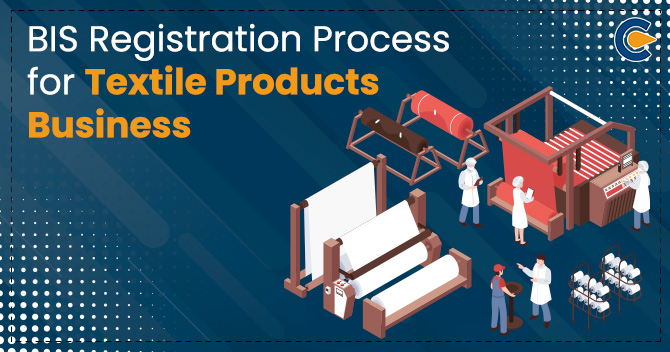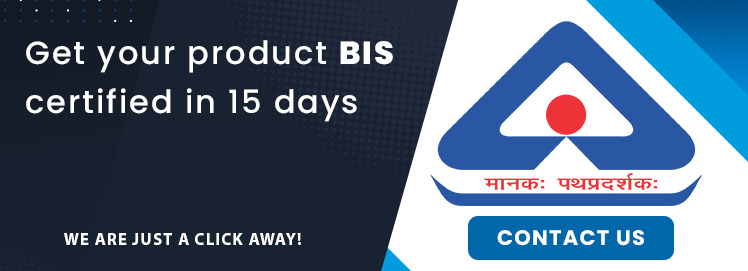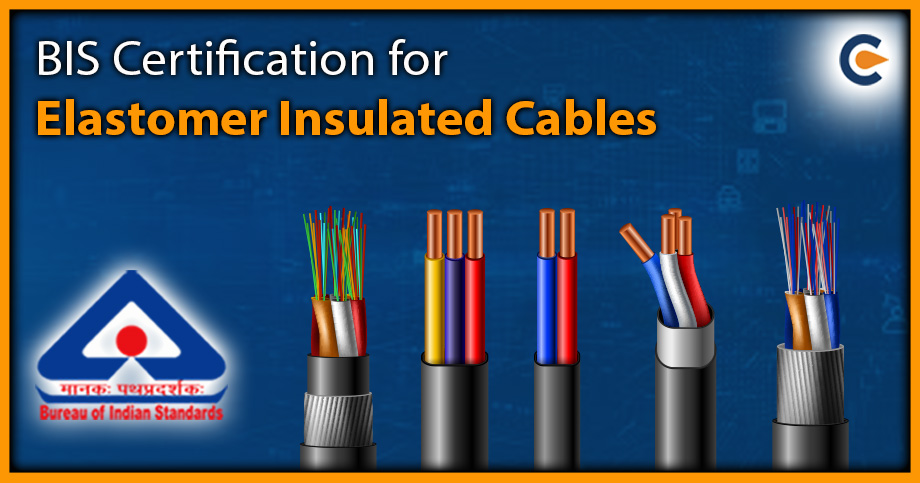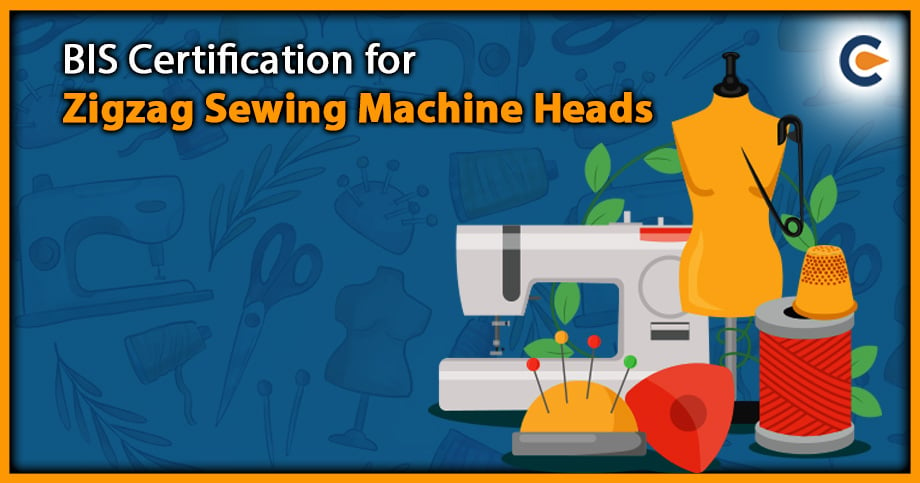The Textile Industry portrays a significant role in our nation’s economy. Complying with the standards set for the manufacturing of textile products is essentially beneficial and necessary for the Textile Businesses and the Consumers of the Textile Products. The Bureau of Indian Standards[1], which is also known as BIS, has to date, published over 1400 standards approximately under the authorisation of the Textiles Division Council or various textile-based products such as cotton, wool, silk, man-made fibres, handloom, khadi, etc., with the inclusion of technical textiles and textile machines and other relevant instruments. The BIS Registration Process is primarily engrossed for technical textiles, identified as Critical Thrust Areas declared by the Government of India in accordance with the Infrastructure Development, Social Responsibility, Nation’s Security and Food Security.
Technical Textile Product Standards
The technical textiles are produced with the primary focus of the product being utilised for technical and functional properties. The technical textile industry is a multi-disciplinary field that is utilised for multiple applications. The Textile products being produced need to obtain the BIS Registration Certification mandatorily in accordance with the BIS Registration Process.
The Classifications Technical Textile Products
The Technical Textile Products are utilised in significant fields that affect the economy of the country, which is specified as follows –
- Aggrotech Industry –
A few examples of technical textiles utilised in the business of Aggrotech are shade nets, mulch mats, crop covers, anti-hail nets, bird protection nets, fishing nets, etc.
- Buildtech Industry –
A few examples of technical textiles utilised in the business of Builtech are architectural membranes, awnings, canopies, hoardings, signages, floor coverings, wall coverings, scaffolding nets, cotton canvas tarpaulins, etc.
- Clothtech Industry –
A few examples of technical textiles utilised in the business of Clothtech are shoelaces, interlinings, zip fasteners, narrow elastic fabrics, tapes, garments, umbrella cloth, etc.
- Geotech Industry –
A few examples of technical textiles utilised in the business of Geotech business are geogrids, geonets, geocomposites, etc.
- Hometech Industry –
A few examples of technical textiles utilised in the business of Hometech are fiberfill, mattress and pillow components, carpet backing cloths, stuffed toys, blinds, etc.
- Indutech Industry –
A few examples of technical textiles utilised in the business of Indutech are filtration products, conveyor belts, drive belts, bolting cloths, computer printer ribbons, paper making fabrics, etc.
- Meditech Industry –
A few examples of technical textiles utilised in the business of Meditech are diapers, sanitary napkins, contact lenses, surgical products and artificial implants, surgical gowns, etc.
- Mobiltech Industry –
A few examples of technical textiles utilised in the business of Mobiltech are seat belt webbings, airbags, helmets, seat upholstery, airline disposables, nylon tire cords, etc.
- Oekotech Industry –
A few examples of technical textiles utilised in the business of Oekotech are environmental engineering, environmental protection, recycling, waste disposal, etc.
- Packtech Industry –
A few examples of technical textiles utilised in the business of Packtech are Polyolefin woven sacks, FIBC, leno bags, wrapping fabrics, jute hessian, sacks, etc.
- Protech Industry –
A few examples of technical textiles utilised in the business of Protech bullet proof jackets, fire retardants apparels, fire retardant furnishing fabrics, chemicals protection clothing, high visibility clothing, industrial gloves, etc.
- Sporttech Industry –
A few examples of technical textiles utilised in the business of Sporttech are sports composites and nets, artificial turfs, parachute fabrics, sport shoe components, tents, swimwear, etc.
The Necessity of BIS for Technical Textiles
The Federation of Indian Chambers of Commerce and Industry, which is also known as FICCI, had stated that due to the non-availability of proper standards was one of the major obstacles in the development of the Technical Textile Industry. Leading to which, the Bureau of Indian Standards published specific notifications for each technical industry. For the smooth functioning of the textile industry, the BIS, Office of Textile Commissioner has established Committees for the maintenance of Standards at each of the four BIS Centers of Excellence, which are also known as COEs and declared that the Director of the respective COE is to handle the responsibility of being the convenor. The BIS has notified that the monitoring to be conducted of the standards being maintained by the applicable Textile Industry is to the constituted under the authorisation of the Joint Secretary, along with the members of the user industries and the Director of the COEs as the members.
Benefits of BIS Registration for Textile Product Business
The essential benefits of securing BIS Registration Certification in accordance with the BIS Registration Process for Textile Product Business are specified as follows –
- Providing grounds for Total Quality Management, which is also known as TQM
- Ensuring better utilisation of resources
- Eliminating overhead expenses utilised during manufacturing of the final textile product to be sold
- Facilitating global recognition along with providing a chance to explore international markets
- Provides evidence and ensures the quality of the product
- Enabling the applicant company to modify the quality management
- It is beneficial to companies as it provides positive branding resulting in the growth of market reputation
- Promoting trust and confidence for consumers toward the applicable company
Documents for BIS Registration Process for Textile Product Business
The following specified documents mentioned below are mandated to be self-attested with the application form for BIS Registration Process for Textile Product Business –
- A copy of the Trade License
- Company’s Registration Certification
- Identification Details and Residential Address of the applicant company’s Director, Partner or Proprietor
- Chartered Accountant Certification if the applicant company is a Proprietorship Firm
- Proof of Incorporation of the Company
- Partnership Deed if the applicant company is a Partnership Firm
- GST Registration Certification
- A copy of the MSME Registration Certification
- Identification Proof, such as Aadhaar Card, PAN Card, etc.
- A copy of the Electricity Bill, etc.
- Proof of Ownership of the Property such as Lead Deed, Sale Deed, Rent Agreement, etc.
- A detailed layout of the Premises
- Trademark Registration of the applicant company
- List of the Machinery to be utilised for the manufacturing of the Textile Product
- The structural layout of the production factory
- A detailed layout of the production flowchart
- Detailed list of the production machineries being utilised, technical person in charge, raw material being utilised, and the test equipments
- Necessary documents for the Authorised Indian Representative, which is also known as an AIR for applicant companies with an overseas producer
BIS Registration Process for Textile Product Business
The following steps mentioned below specify the BIS Registration Process for Textile Product Business –
- The applicant firstly needs to submit Application Form – I, which is mandated to be duly filled and submitted along with the prescribed registration fees to the appropriate branch office that falls within the jurisdiction of the state where the manufacturing unit is located.
- The applicant is required to submit all necessary documents mentioned above to be attested with the application form.
- The documents submitted will undergo a strict evaluation process, and upon successful results, the application form is to be forwarded for further inspections.
- A preliminary inspection of the textile production unit is to be conducted within fifteen days to be counted from the date of submission. The target of the inspection being conducted by the BIS authorised personnel is to check if all the BIS Indian Standards are being complied with in regard to the capability, quality, and control.
- The sample testing of the products is to be conducted strictly in s BIS Recognised Laboratory.
- The BIS License for utilising the Standard Mark in the textile product is to be granted only after the BIS has declared conformity that the relevant Indian Standards set by the BIS are being maintained. The validity of the grant is valid for one year and can be renewed subject to the maintenance of the standards. The application fees is notified by BIS and updated continuously from time to time.
Conclusion
The BIS Certification to be obtained in accordance with the BIS Registration Process for textiles is voluntary in nature, with the exception of technical textiles. For Technical Textiles, the Central Government of India, along with the consideration of BIS, has mandated specific standards for each individual textile industry, taking into consideration the safety of the public’s health and ensuring the quality of the product.
Read our Article:Know all Documents required for BIS Registration: Complete Outlook













